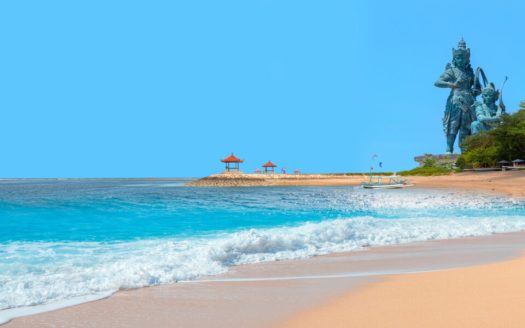Bali Real Estate – Bali’s Zoning Laws
Bali Real Estate – Bali’s Zoning Laws
Bali’s zoning laws are in the process of being revised. One of the sections set for rewriting in Perda No. 16 – RTRWP Bali is section 122 on zones designated as special tourism zones (KSPD/KDTWK).
Bali Real Estate – Coefficients
Under the current law, buildings in tourism zones must leave a minimum of 40% of the property’s land area undevekoped to remain as open-spaces or gardens. Known as the Basic Building Coefficient (KDB)the proposed change to the revised zoning laws will required a 50% KDB for any projects built in special tourism zones.
Bali Real Estate – Special Tourism Zones
The new zoning laws will also see the amount of land dedicated to Special Tourism Areas – KSPD increased from a total of 2% to 5% of all land area in Bali. “We must cluster together tourism projects. In certain areas, we must increase the land used by tourism,” explained the Deputy Governor of Bali, Tjok Oka Artha Ardhana Sukawati, on Wednesday, December 12, 2018, as quoted by Balipost.com.
Bali Losing its Forests and Jungles
Sukawati said that as Bali develops its tourism base, nature and Bali’s environment must be protected. The deputy governor said that at the current time, the amount of “forest and jungle” land in Bali is already below the established parameters set by the Central Government.
Zones for Tourism- Related Activities
Proposals to increase from 10% to 40% the amount of total land dedicated to tourism-related activities (KDTWK) has been roundly criticized by the chairman of the Tourism Center of Udayana University, A.A. Suryawan Wiranatha. In Wiranatha’s opinion, increasing tourism zones from 10% to 40% is much too ambitious. He says the maximum should be 20%. “We want the tourism zone areas be limited to below 30% – we can’t have a 30% coefficient for KDTWK, said Wiranatha.
The KDTWK, or special zones to attract tourism businesses, in conservation zones such as Bedugul, Wiranatha says should embrace undeveloped green zones for tourism and a 40% coefficient that create more open nature areas. Even if the 40% coefficient was dedicated to development projects and construction of tourism business activities, Wiranatha said the end result would still damage Bali, worsening the Island’s ongoing water crisis. Jungle areas and forests must be preserved to serve as water-catchment areas, he said.
Bali Real Estate – The Cost of Tourism Over-Development
If Bali is overdeveloped in Special Zones to Attract Tourism (KDTWK) Wiranatha warns that health problems will be the result and natural disaster, such as landslides and floods, will occur. An general alarm in this regards was raised in a survey conducted in Bali in the 1990s. For these reasons, Wiranatha hopes that the revision of Zoning Law (RTRWP) will not succumb to the egotistical demands of one sector of Bali’s economy. Warning: “Not all areas of Bali need to be developed.”
He called for area of the Island to be preserved and left largey undeveloped for the absorption of rain water back into the water table. Bali has adopted a policy of “one Island, one management” meaning that absorption areas must be left undeveloped and theses area must be supported by revenues derived from businesses in more developed areas.
“We must not only think of the economy. We need to think holistically. Nature must be integrated and saved. This involves the health of us all.” Reminded Wiranatha.
Speaking separately, the chairman of the special legislative committee for the review of the RTRWP Bali, I Ketut Kariyasa Adnyana, said the enlargement of the developed areas for tourism has yet to be decided.





